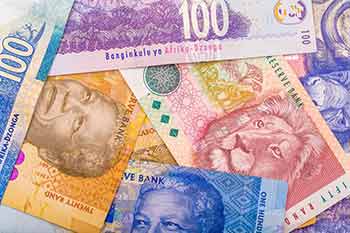The Euro to South African Rand (EUR/ZAR) exchange rate strengthened on Thursday as it found support from better than forecast German confidence data, and as risk sentiment fell on fears that the violence in the Middle East is spreading.
The Euro to South African Rand (EUR/ZAR) exchange rate strengthened to a session high of 13.1420
Earlier in the session the Euro was boosted by the release of consumer sentiment data in Germany, which came in at a 13-year high. The GFK’s forward-looking consumer sentiment index climbed to 10 from 9.7 points in March. The figure was the highest seen since October 2001 and beat forecasts for a figure of 9.8.
All sub-indicators of consumer confidence that included economic expectations, income outlook and the willingness to buy strengthened again in March. Economic expectations improved for the fourth straight month in March. The corresponding index rose 9.6 points to 36.8 in March. A higher value of 45.9 was last seen in July 2014.
Sentiment is rising due to low inflation, rising wages and expectations that the European Central Bank’s €1.1 trillion quantitative easing programme
‘Consumers consider the German economy to be on a clear upward trend based on a weak Euro, which is boosting exports, and lower energy costs. The improving economic outlook in Europe’s largest economy helped income expectations and willingness to buy to surpass the record value of the previous month,’ said GfK.
Middle East Conflicts Dent Risk Sentiment
The South African Rand meanwhile weakened against the majority of its most traded peers as escalating tensions in the Middle East weighed upon demand for riskier assets.
Appetite for such assets took a hit after Saudi Arabia and its allies launched military action in Yemen to halt the advance of Houthi rebels.
The escalation increased fears that a proxy war between Saudi Arabia and Iran could turn into a full-blown conflict. The currency is forecast to come under more pressure as the conflict intensifies.
‘The Rand is at risk of further losses as risk-off sentiment grows. Risk-off was triggered by the Saudi air strikes on Iran-backed rebels in Yemen and has spread into a sharp jump in the oil price and aggressive falls on Wall Street,’ said RMB analyst John Cairns.
Also influencing the South African Rand was the decision by the nation’s central bank to leave interest rates unchanged at 5.75%. The lack of a move was widely expected by economists.
Producer price inflation in the country was shown to have increased by a larger than forecast level in February. Producer prices increased to an annual rate of 0.4% from the previous figure of -1.1%.



